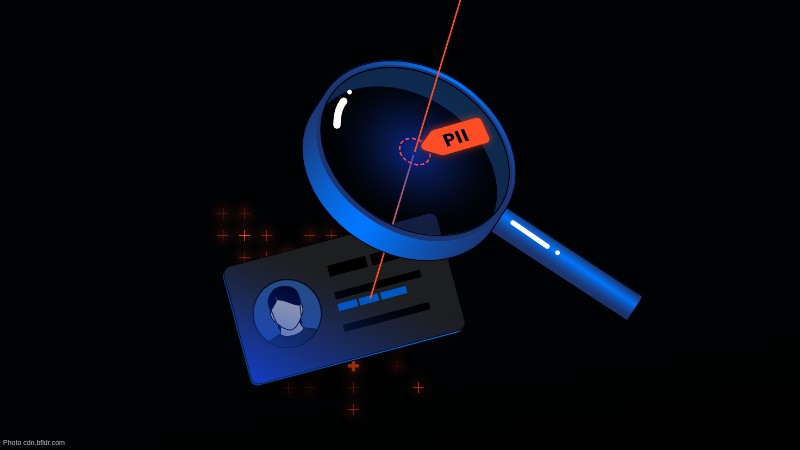Varonis Systems, Inc. (Nasdaq: VRNS), a global leader in data security, is set to participate in ViVE 2025, scheduled from February 16 to 19 in Nashville, Tennessee. The event will focus on key advancements in healthcare technology, with Varonis showcasing its expertise in securing Protected Health Information (PHI), automating compliance, and mitigating risks associated with AI adoption in healthcare.
The rise of digital health records and AI has increased cybersecurity risks. Varonis tackles these challenges with access governance, blast radius reduction, and HIPAA compliance, using AI-driven automation to protect patient data.
Key Takeaways
Varonis Systems is set to participate in ViVE 2025, focusing on securing Protected Health Information (PHI) and automating compliance through AI-driven solutions.
- Varonis addresses cyber threats by limiting exposure, automating compliance, and ensuring secure AI integration.
- The company provides tools for continuous risk assessment, access governance, and detection of insider threats to protect PHI.
- At ViVE 2025, Varonis will showcase its latest security solutions through live demos and expert-led sessions.
Securing healthcare data in the age of AI
As healthcare adopts AI-driven technologies, securing Protected Health Information (PHI) is more critical than ever. Cyber threats, unauthorized access, and compliance risks make strong security measures essential. Varonis helps healthcare organizations protect PHI by limiting exposure, automating compliance, and ensuring secure AI integration.
The challenges of PHI security and compliance
Healthcare organizations are prime targets for cybercriminals due to the sensitive nature of patient data. PHI breaches can lead to severe consequences, including financial penalties, reputational damage, and compromised patient safety. Additionally, evolving HIPAA regulations require organizations to strengthen their data security measures while enabling digital transformation.
One of the primary risks is that cybercriminals no longer rely solely on breaking into systems—they often use stolen credentials to log in and move laterally within networks. If an attacker gains access to a compromised account, they can exfiltrate massive amounts of PHI unless strict access controls are in place. Varonis addresses these challenges by the following.
Automating risk assessments: Continuously identifying vulnerabilities to prevent unauthorized PHI exposure.
Enhancing access governance: Ensuring that only the right users have access to the data they need.
Detecting insider threats: Identifying suspicious behavior and blocking unauthorized access before breaches occur.
By implementing these security measures, healthcare organizations can significantly reduce their exposure to cyber threats and enhance compliance with regulatory standards.
How AI is reshaping healthcare data security
AI is transforming healthcare, enabling more efficient diagnostics, personalized treatments, and streamlined administrative processes. However, AI adoption also introduces new security risks as these systems require access to vast amounts of patient data.
The use of AI in healthcare presents several challenges, particularly in protecting Protected Health Information (PHI). As AI systems process large datasets, they increase the risk of unauthorized access and potential data breaches.
Organizations must also ensure that AI-driven analytics comply with HIPAA regulations to prevent privacy violations. Additionally, AI models can become targets for cyberattacks, with adversaries seeking to exploit sensitive medical data. These challenges highlight the need for robust security measures to safeguard patient information.
Varonis helps healthcare organizations use AI securely by providing visibility into AI workflows, ensuring they can monitor how AI accesses and processes PHI. It also protects AI-powered applications from data breaches and cyber threats, reducing the risk of unauthorized access. Additionally, Varonis automates policy enforcement to maintain compliance with HIPAA and other regulations, preventing improper PHI exposure.
Varonis at ViVE 2025: What to expect
At ViVE 2025, Varonis will showcase its latest tools for securing PHI, ensuring HIPAA compliance, and managing AI risks. Attendees can explore these solutions through live demos and expert-led sessions.
Live demonstrations and hands-on experience: Attendees at ViVE 2025 can visit Varonis at Viosk #2825 in the Cybersecurity Pavilion to experience live demonstrations of the Varonis Data Security Platform. These sessions will provide real-world insights into how Varonis automates compliance, reduces ransomware risks, and strengthens healthcare cybersecurity.
Key highlights of Varonis at ViVE 2025 include one-on-one demos, where attendees can interact with security experts and see Varonis solutions in action. Visitors will also have the chance to receive exclusive giveaways, including swag and prizes. Additionally, Varonis will provide insights into AI security, offering a deep dive into evolving AI-driven threats and strategies to stay protected.
Expert session: “PHI-ght for Your Right to AI Party!”: One of the most anticipated sessions at ViVE 2025 will be led by Varonis Field CTO Brian Vecci. The session will focus on how healthcare leaders can maintain visibility into AI use, secure PHI, and adapt to evolving HIPAA regulations.
The session will take place on Tuesday, February 18, at3 p.m. EST in the Cybersecurity Pavilion. Healthcare professionals attending will gain actionable strategies for integrating AI while maintaining security and compliance.
Managing AI and PHI security beyond ViVE 2025
As AI continues to shape the future of healthcare, data security must remain a top priority. Organizations must move beyond traditional cybersecurity approaches and adopt proactive strategies that minimize risks before they escalate. Varonis provides a comprehensive security framework that helps healthcare organizations.
Automate compliance: Reducing manual workload while ensuring continuous HIPAA compliance.
Protect against AI-driven sttacks: Detecting and stopping cyber threats that exploit AI vulnerabilities.
Secure PHI across cloud environments: Safeguarding data in SaaS, IaaS, and hybrid infrastructures.
As cyber threats become more sophisticated, healthcare organizations must implement robust security measures to protect PHI and maintain compliance. Varonis’s participation in ViVE 2025 highlights its commitment to helping healthcare providers navigate the complexities of AI adoption while securing sensitive patient data.
Through live demonstrations, expert-led discussions, and AI security insights, Varonis aims to empower healthcare leaders with the knowledge and tools needed to strengthen their cybersecurity posture.






